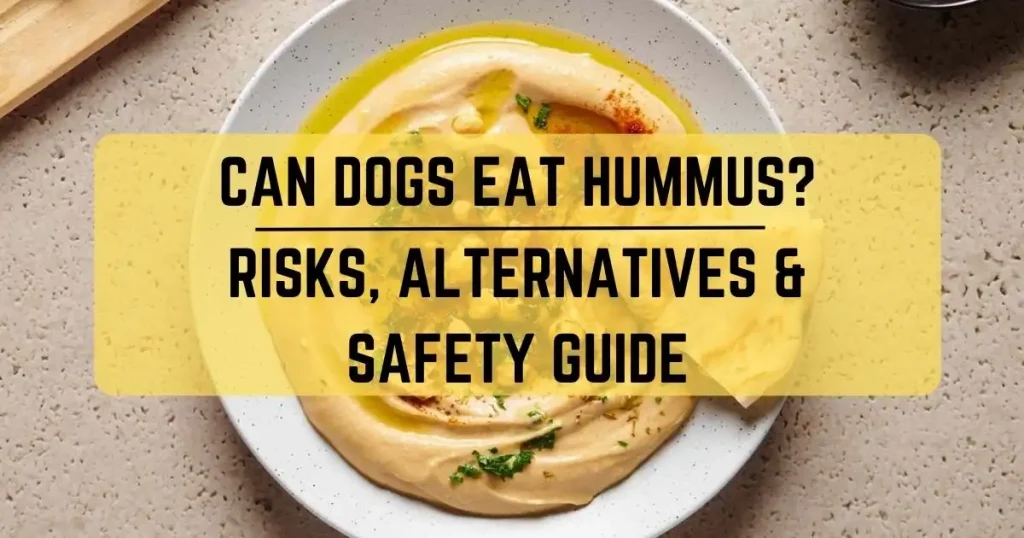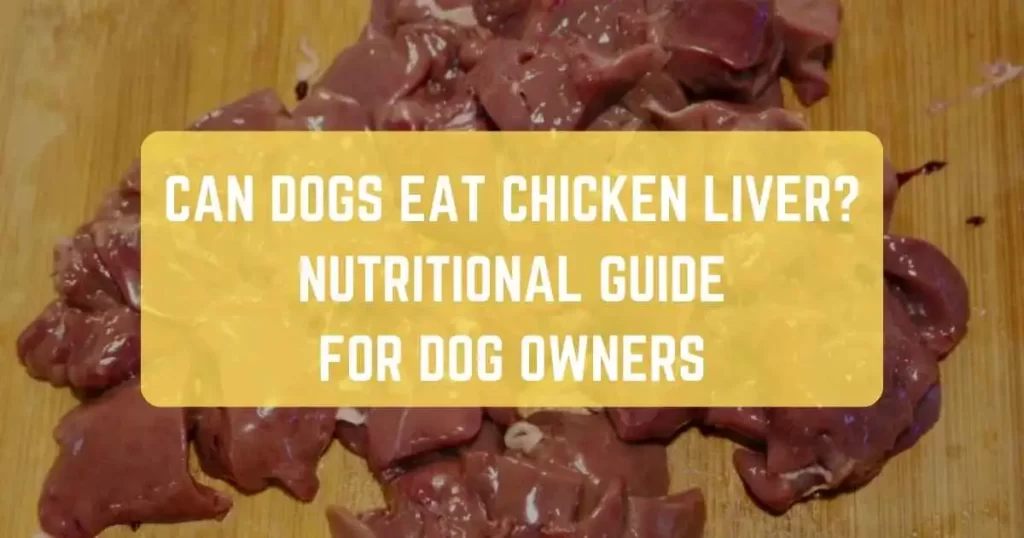
If you’re a dog lover like me, you might have wondered whether dogs can enjoy hummus, that delectable dip we humans relish. The quick answer: it’s a bit complex.
While dogs can eat chickpeas, the main ingredient in hummus, there are other components to consider. Lemon juice, tahini, garlic, and even red pepper hummus—these can all be found in various hummus recipes.
But let’s dive deeper into the details to see if hummus is a safe and healthy treat for our furry friends.
Can Dogs Eat Hummus?
No, dogs should not eat hummus. While plain chickpeas, the main ingredient in hummus, might be safe for dogs in moderation, hummus often contains harmful ingredients like garlic and lemon juice that can be toxic to dogs, leading to serious health risks.
Health Risks of Feeding Hummus to Dogs
Feeding your dog hummus, particularly varieties containing garlic or onion, can result in detrimental effects on their health. It’s essential to be aware of these risks to safeguard your furry companion’s well-being. Here’s what you need to know:
- Garlic Toxicity: Garlic is incredibly toxic to dogs, even when consumed in small amounts. This potent ingredient can disrupt red blood cells, leading to severe health complications.
- Lemon Juice Concerns: Lemon juice, a common hummus ingredient, can pose problems for dogs. It might lead to digestive discomfort and issues, which can affect your dog’s overall comfort.
- Seasonings and Citric Acid: Hummus often contains various seasonings and citric acid, which might not be well-tolerated by dogs. Their sensitive digestive systems might react differently compared to humans.
- Excessive Ingredients: While a small nibble of plain hummus might not cause harm, it’s crucial to avoid hummus that contains garlic, onions, or excessive seasoning. These components can trigger adverse reactions in your dog.
Remember, your dog’s health is paramount, and being cautious about their diet choices can prevent potential health problems.
What happens if a dog eats hummus?
If your dog happens to ingest hummus, particularly one with garlic, lemon juice, or other harmful components, it’s crucial to be vigilant for any adverse reactions.
Symptoms can vary from mild gastrointestinal distress, such as vomiting and diarrhea, to more serious consequences like damage to red blood cells and abdominal pain.
Remember that dogs have a different digestive system than humans, so even foods that seem innocuous to us might cause harm to our furry companions.
Homemade Hummus: Healthy For Dogs
If you’re determined to share the joy of hummus with your dog, you can consider making a homemade version with their safety in mind. Opt for plain hummus without any garlic, onions, or excessive seasonings. Mashed chickpeas can be a great source of protein and fiber for dogs, while the tahini can add healthy fats.
However, be cautious even with homemade hummus, as ingredients like lemon juice can still be problematic for dogs in excess. If you want to provide your dog with a hummus-like treat, consider steaming and mashing chickpeas without any added seasonings.
Always consult your veterinarian before introducing any new food to your dog’s diet.
Healthy Alternatives To Hummus
If you’re looking for safe and nutritious treats for your furry friend, there are alternatives to hummus that can satisfy their taste buds. Consider these options:
- Plain Cooked Chickpeas: Chickpeas are the main ingredient in hummus and are packed with protein and fiber. Simply cook them and offer them as a snack.
- Carrot Sticks: Carrots are a crunchy and low-calorie treat that dogs usually enjoy. They’re rich in vitamins and minerals.
- Apple Slices: Remove the seeds and core, then slice apples into dog-friendly portions. They provide a sweet and healthy snack.
- Blueberries: These small fruits are full of antioxidants and can be given as occasional treats.
- Pumpkin Puree: Plain, unsweetened pumpkin puree is rich in fiber and can aid in digestion.
- Yogurt: Plain, unsweetened yogurt is a source of probiotics and can be a creamy treat for your dog.
- Sweet Potato Chews: Slice and bake sweet potatoes for a chewy and nutritious snack.
- Cooked Lean Meats: Small portions of cooked chicken or turkey can be a protein-packed delight.
Conclusion: Hummus Bad For Dogs?
In conclusion, while dogs can safely eat plain chickpeas in moderation, hummus isn’t the best snack for your furry friend. The harmful ingredients found in many hummus recipes, such as garlic and lemon juice, can lead to health risks and discomfort for your dog.
Garlic and onions, members of the allium family, are particularly toxic to dogs and can damage their red blood cells. If you’re set on sharing a snack with your dog, it’s best to choose dog-safe treats that don’t contain any ingredients harmful to their well-being.
Remember, your dog’s health and happiness are top priorities, so always make informed choices when it comes to their diet.
Frequently Asked Questions
Is It Safe For Dogs To Eat Hummus?
No, it is not safe for dogs to eat hummus. Hummus commonly contains ingredients like garlic and lemon juice that are toxic to dogs. These ingredients can disrupt red blood cells, cause digestive issues, and lead to discomfort or more severe health problems in dogs.
Can Dogs Eat Hummus Chips?
No, dogs should not eat hummus chips. Hummus chips typically share the same harmful components as regular hummus, such as garlic, lemon juice, and seasonings. These ingredients can be dangerous for dogs, potentially causing digestive distress, toxicity, and other health complications.
Can Dogs Eat Hummus Dip?
No, dogs should not eat hummus dip. While plain chickpeas are safe, hummus often contains ingredients like garlic and onion that are harmful to dogs. These ingredients can lead to digestive issues, discomfort, and damage to red blood cells. It’s best to avoid sharing hummus with your furry friend.









